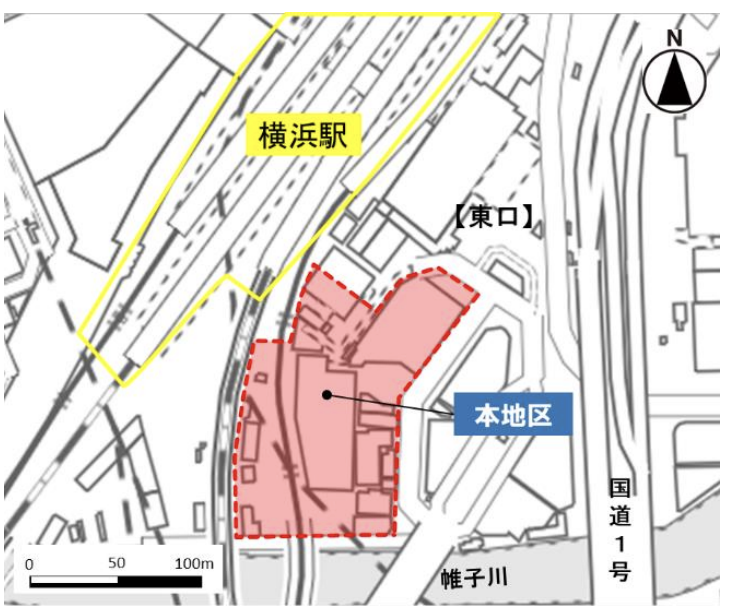In recent years, interest in real estate investment has been growing among the wealthy. According to the latest survey by Nomura Research Institute, the total number of affluent and ultra-affluent households in Japan reaches approximately 1.65 million.
In this article, I will explain in detail why high-net-worth individuals choose to invest in real estate, based on my experience as an INA & Associates, Inc. business mainly for ultra-high-net-worth individuals. I will also discuss specific investment strategies based on the market environment in 2025, which I hope will be helpful to readers in their asset management.
Seven Reasons Why High Net Worth Individuals Choose Real Estate Investment
1. securing stable disposable income
One of the most important reasons why high-net-worth individuals choose to invest in real estate is the ability to secure stable, disposable income. Unlike investments in stocks and bonds, real estate investments generate continuous cash flow in the form of monthly rental income.
Market data for the first quarter of 2025 shows that surface yields of 3-5% can be expected for condominiums and about 8% for single-family apartments and condominiums. These figures represent attractive investment returns in the current financial environment, where long-term interest rates are at 1.1%.
In many cases, I have proposed to my clients stable yields of 5-7% per year on prime properties in central Tokyo. In particular, well-located and well-managed properties can provide long-term income with minimal vacancy risk.
The appeal of unearned income lies in the fact that the asset automatically generates income without the investor having to be busy with his or her own day-to-day business. Since many high-net-worth individuals are extremely busy with their day jobs, such a system of "having money work for you" is extremely valuable.
2. taking advantage of high tax-saving effects
Tax savings in real estate investment is an extremely important factor for HNWIs. For HNWIs in particular, who are subject to high income tax rates, the ability to realize a profit/loss from their real estate investments can be of great benefit.
In real estate investment, depreciation of buildings, management costs, repair costs, interest on loans, etc. can be recorded as expenses. These expenses create a loss on the books, which can then be offset against employment income or business income to reduce the overall tax burden.
To give a concrete example, a wealthy person with an annual income of 20 million yen who posts 3 million yen in depreciation annually through real estate investment can save approximately 1.5 million yen in income tax and inhabitant tax. This is a factor that significantly increases the actual rate of return on investment.
In addition, real estate investment using a corporation can enjoy further tax-saving benefits. In the case of wealthy individuals with high personal income tax rates, the tax burden can be reduced by the difference between the corporate tax rate and the individual income tax rate, and many clients choose to invest in real estate through the establishment of a corporation.
Effectiveness as an inheritance tax measure
Inheritance tax measures are an important issue that wealthy individuals cannot avoid. Real estate investment is an extremely effective means of inheritance tax planning.
The inheritance tax assessed value of real estate is set much lower than the actual market value. Since land is valued at the inheritance tax roadside land price (approximately 80% of market value) and buildings are valued at the fixed asset tax assessed value (approximately 70% of market value), the inheritance tax assessed value can be reduced compared to holding real estate in cash.
Furthermore, by utilizing the special exception for small residential lots, etc., it is possible to receive a valuation reduction of up to 80%. For example, even land valued at 100 million yen can be reduced to 20 million yen by applying this special exception, resulting in a very large inheritance tax reduction.
In the case of rental property, the reduction in the valuation of land with leasehold interest is also applicable. The reduction in valuation based on the ratio of land leasehold x the ratio of building leasehold (usually 30%) can be expected to further reduce inheritance tax.
| Types of inheritance tax measures | Reduction rate | Conditions for application |
|---|---|---|
| Special Exception for Small Building Lots, etc. | Up to 80 | Up to 330m2, for residential and business use |
| Reduction in valuation of building lots for rent | Approx. 30 | Land for rental property |
| Reduction in valuation of buildings | Approx. 30 | Based on property tax assessed value |
4. efficient investment through leverage effect
One of the most attractive features of real estate investment is the leverage effect. By borrowing from financial institutions, you can invest many times more than your own funds, significantly improving investment efficiency.
In the current interest rate environment, loans can be obtained at interest rates in the low 1-2% range for quality properties. If the property yields 5-7%, the difference between the interest rate and the borrowing rate is effectively the return on investment, significantly increasing the yield on equity capital.
For example, consider the case where a property worth 100 million yen is purchased with 20 million yen in cash on hand and 80 million yen in loans. If the annual rental income is 6 million yen (6% yield) and the borrowing interest rate is 1.5%, the annual borrowing interest rate would be 1.2 million yen. The actual annual income would be 4.8 million yen, and the yield on the equity capital of 20 million yen would be 24%, a high rate of return.
However, the leverage effect also entails risk. Careful risk management is necessary, as the expected return may not be achieved due to rising vacancy rates or interest rate hikes. Whenever I make a proposal to a client, I always conduct simulations that assume multiple scenarios and formulate an investment plan that minimizes risk.
5. portfolio diversification
Portfolio diversification is extremely important in the asset management of high net worth individuals. In addition to financial assets such as stocks, bonds, and cash, real assets such as real estate can be incorporated to diversify risk.
Since real estate exhibits a different price fluctuation pattern from the stock market, it has the potential to provide stable income even when the stock market is in a slump. In fact, even during the Lehman Shock in 2008 and the Corona Shock in 2020, prime real estate properties maintained relatively stable prices.
In the portfolios I propose to my clients, I typically recommend that 30-50% of total assets be held in real estate. This effectively diversifies the risk of market fluctuations while ensuring stable income.
6. inflation hedge effect
In recent years, as concerns about inflation have increased worldwide, attention has focused on real estate investments that have an inflation hedge effect. Since real estate is a real asset, its value tends to increase in tandem with rising prices during times of inflation.
In Japan, prices of new properties are continuously rising due to the rising cost of construction materials and labor costs. This also increases the relative value of existing real estate properties, which can be expected to preserve asset value over the long term.
Rents also tend to rise in tandem with inflation. In particular, in prime locations in central Tokyo, there is strong upward pressure on rents, and it is possible to secure stable real income even in an inflationary environment.
It is not unusual for rents to rise 20-30% over a 10-year period in projects I have handled. This is equivalent to a 2-3% annual increase in rents, and realizes a real increase in earnings that exceeds the rate of inflation.
7. low price volatility risk
Compared to equity and FX investments, real estate investment is characterized by relatively low price volatility risk. Real estate prices are less susceptible to short-term market sentiment and tend to be formed based on long-term supply-demand balance and economic fundamentals.
Looking at the real estate market in 2025, prices are likely to rise overall due to a decrease in supply and the low interest rate environment. Demand continues to outstrip supply, especially for prime properties in central Tokyo, maintaining price stability.
However, even though the risk of price fluctuation is low, location selection and property selection are extremely important. When I make proposals to clients, I select properties with emphasis on the following factors
- Location: within a 10-minute walk from a train station, along a major train line
- Surrounding environment: commercial, educational, and medical facilities
- Future potential: redevelopment plans, demographic projections
- Building quality: structure, facilities, management status
By comprehensively evaluating these factors, we select properties that can maintain stable value over the long term and minimize the risk of price fluctuations.
Specific Strategies for Real Estate Investment for High Net Worth Individuals
How to Select Properties for Investment
Property selection is the most important factor in real estate investment for high net worth individuals, as it is the key to success. Based on my experience with many clients, I recommend evaluating properties based on the following criteria
Importance of Location
As the saying in real estate investment goes, "location, location, location," location is the most important factor in determining the value of a property. For high-net-worth investors in particular, it is important to select a property that meets the following location conditions
- Access to a major train station within a 10-minute walk
- Convenient access to multiple train lines
- Surrounding environment with excellent commercial, educational, and medical facilities
- Location to benefit from future redevelopment plans and urban planning
Investment Strategies by Property Type
| Property Type | Expected Yield | Approximate investment amount | Features & Advantages |
|---|---|---|---|
| Condominiums | 3-5% (3 million yen to 100 million yen) | 30-100 million yen | Easy to manage, high liquidity |
| Single-unit condominiums | 6-8% 6-8% 6-8% 6-8% 6-8 | 100-500 million yen | High yield, high controllability |
| Single-unit apartments | 7-9% (50 million yen to 200 million yen) | 50-200 million yen | Relatively low price, high yield |
| Office building | 3-5% (over 500 million yen) | 500 million yen or more | High stability, for large investments |
| Retail properties | 4-6% Over 300 million yen | Over 300 million yen | Depends on tenants, expertise required |
Importance of Due Diligence
Detailed investigation of a property (due diligence) is essential for high-net-worth investments. When I make recommendations to clients, I conduct a thorough investigation of the following items
- Investigation of the building's structural and facility condition
- Past repair history and future repair plans
- Analysis of rental market trends and competitive properties
- Verification of legal risks (building code, city planning laws, etc.)
- Verification of the accuracy of income/expense simulations
Tax advantages of using a corporation
In real estate investment by high-net-worth individuals, the use of a corporation provides significant tax advantages. For high net worth individuals with high personal income tax rates, tax savings by utilizing the difference between the corporate tax rate and the individual income tax rate is extremely important.
Tax Saving Effects of Incorporation
A wealthy individual with an individual income tax rate of 45% (55% including inhabitant tax) and a corporate tax rate of 23.2% (in the case of small and medium-sized enterprises) can achieve tax savings due to the difference in tax rates of approximately 30% by making a real estate investment.
If annual real estate income is 10 million yen, the tax burden for an individual would be approximately 5.5 million yen, but for a corporation it would be approximately 2.32 million yen, realizing an annual tax savings of approximately 3.18 million yen.
Specific Advantages of Using a Corporation
- Income diversification: By having family members as directors, income can be diversified and the impact of progressive tax rates can be reduced.
- Expansion of expenses: Corporations can charge a wider range of expenses than individuals.
- Retirement benefits: Reduce tax burden by receiving retirement benefits in the future.
- Inheritance tax measures: Inheritance as corporate stock reduces the assessed value of the stock.
Points to keep in mind when establishing a corporation
Although there are many advantages to investing in real estate through a corporation, the following points should be noted:
- Costs associated with establishing and maintaining a corporation
- Burden of social insurance premiums
- Complexity of corporate tax filing
- Tax risk when transferring funds to individuals
When I make recommendations to clients, I comprehensively consider these advantages and disadvantages and design an investment scheme that best fits the client's situation.
Importance of Exit Strategies
In real estate investment, exit strategies are an important factor to consider from the start of the investment. In the case of high-net-worth investments, a long-term exit strategy is necessary, especially in view of inheritance and business succession.
Exit Strategy by Sale
The following factors should be considered when planning an exit strategy through the sale of a property
- Understand the market cycle: Understand the cyclical nature of the real estate market and determine the appropriate time to sell.
- Maximize capital gains: Analyze factors that have increased the value of the property since purchase to maximize the sale price.
- Tax considerations: Take advantage of transfer income tax relief and buyout special provisions.
Exit Strategies through Inheritance
For high net worth individuals, exit strategies through inheritance are extremely important:
- Reduction of assessed value: Selection of property and holding method to minimize the assessed value for inheritance tax purposes.
- Securing tax payment funds: Securing liquidity to secure inheritance tax payment funds
- Divestiture strategy: Consideration of fair divestiture method in case of multiple heirs
Exit strategy through business succession
Business succession strategies for corporate real estate investments:
- Phased transfer of shares: Planned transfer of shares utilizing the basic exemption for gift tax
- Use of business succession taxation: Reduce tax burden by taking advantage of special measures
- Training Successors: Passing on knowledge and experience in real estate investment
In the investment plans I propose to my clients, I always envision multiple exit strategies and establish a system that can flexibly respond to changes in market conditions and family situations.
Conclusion
High-net-worth individuals choose to invest in real estate for a wide variety of reasons, but at the root of these reasons is a strong need for stable asset formation and efficient tax strategies. The seven reasons explained in this article are all important factors in solving the unique asset management challenges of high-net-worth individuals.
Recap of key points
- Stable unearned income: Continuous cash flow from monthly rental income
- High tax savings: Reduction of income and inhabitant taxes through depreciation and expensing
- Inheritance tax measures: significant reduction in inheritance taxes through reduced valuation
- Leverage Effect: Improve investment efficiency through the use of debt
- Portfolio Diversification: Stable asset management through risk diversification
- Inflation hedge: Preservation of purchasing power through real assets
- Low price volatility risk: Stability compared to equities
Recommendations Based on the Investment Environment in 2025
In the current market environment, the real estate investment market has been strong despite rising interest rates. 2024 real estate investment reached ¥5 trillion, and the investment environment is expected to remain favorable for both buyers and sellers in 2025.
However, there are some factors that require attention, such as higher expected investment yields due to rising interest rates and increased construction costs. In light of these changes in the environment, we recommend an investment strategy that emphasizes the following points
- Careful selection of locations: Concentrate investment in prime locations with potential.
- Focus on cash flow: Select properties that provide stable rental income.
- Appropriate leverage: Set borrowing ratios that take into account the risk of rising interest rates.
- Clarify exit strategies: Flexible strategies that can respond to changes in the market environment
Next Steps
Real estate investment is an extremely effective asset management tool for high-net-worth individuals, but professional knowledge and experience are essential for success. From property selection to tax strategies and exit strategies, a comprehensive perspective is required.
INA&Associates, Inc. offers tailor-made real estate investment strategies to ultra-high-net-worth individual clients according to their individual asset situation and investment goals. With "human capital" and "trust" at the core of our management, our mission is to support our clients' long-term asset building.
Please feel free to contact us if you would like to discuss your real estate investment needs or to discuss your investment strategy in more detail. With our wealth of experience and expertise, we can help you realize your asset management goals.
Frequently Asked Questions
Q1: What is the minimum investment amount for a high-net-worth individual to invest in real estate?
A1: The minimum investment amount for real estate investment by high-net-worth individuals varies greatly depending on their investment goals and strategies, but in general, many start with 30 million yen or more.
In the case of condominium unit investment, the investment amount ranges from 30 million yen to 100 million yen for prime properties in central Tokyo. On the other hand, an investment in a single condominium or apartment building requires an investment of 100 to 500 million yen.
What is important is not the size of the investment, but the selection of the appropriate property according to your investment goals. If the main objective is to prevent inheritance tax, it is important to select a property with a high valuation reduction effect, and if the objective is to generate stable income, it is important to select a property with a high yield.
I recommend that my clients set the ratio of real estate investment to total assets at 30-50% and gradually increase the size of their investment while diversifying risks.
Q2: To what extent can tax savings be expected from real estate investment?
A2: The tax-saving effects of real estate investment vary greatly depending on the income level of the investor and the size of the investment, but it is possible to realize tax savings of several million yen to several tens of millions of yen per year through appropriate use.
Income tax and inhabitant tax savings
A wealthy individual with an annual income of 20 million yen who invests in a 100 million yen income property and records 5 million yen in depreciation per year will save approximately 2.75 million yen in income and inhabitant taxes (when the maximum tax rate of 55% is applied).
Inheritance Tax Savings
The effect as an inheritance tax measure is even greater. By investing 100 million yen of cash in real estate, the inheritance tax assessed value can be reduced to about 50 million yen. At an inheritance tax rate of 50%, this can realize an inheritance tax reduction effect of approximately 25 million yen.
Tax Reduction Effects of Using a Corporation
Real estate investment through the use of a corporation can provide tax savings equal to the difference between the individual income tax rate and the corporate tax rate. If a wealthy individual with an income tax rate of 45% invests at a corporate tax rate of 23.2%, he/she can expect tax savings of approximately 22% due to the difference in tax rates.
Q3: When is the best time to start real estate investment as an inheritance tax measure?
A3. It is important to start real estate investment as an inheritance tax measure as early as possible. This is because a sufficient preparation period is necessary to maximize the inheritance tax saving effect.
Concept of optimal timing
- In good health: Considerable time and effort are required for property selection and contracting procedures.
- More than 3 years prior to inheritance: Gifts made within 3 years prior to the start of inheritance are subject to inheritance tax.
- Favorable market environment: Market environment that allows acquisition of superior properties at reasonable prices.
Investment Strategies by Age
- 50s: A period of aggressive investment expansion. Efficient investment using leverage.
- 60s: Stability-oriented investment. Full-fledged inheritance tax planning
- 70s and above: Invest with liquidity in mind. Secure funds to pay inheritance tax.
When I make recommendations to clients, I develop a step-by-step investment plan based on an inheritance tax estimation and calculation of the necessary tax savings. By starting early, we are able to select the most suitable property from a larger number of options.
Q4. What are the risks of real estate investment and how can I counter them?
A4. Although there are multiple risks involved in real estate investment, it is possible to minimize these risks by taking appropriate measures.
Major Risks and Countermeasures
| Type of risk | Specific details | Countermeasures |
|---|---|---|
| Vacancy risk | Cannot find tenants | Careful selection of location and setting of appropriate rent |
| Risk of rent decline | Decline in market rents | Selection of locations with stable demand |
| Risk of rising interest rates | Rise in borrowing rates | Utilize fixed interest rates, adjust borrowing ratios |
| Disaster risk | Damage from earthquake, fire, etc. | Obtain insurance, confirm earthquake resistance |
| Liquidity risk | Difficulties at time of sale | Selection of locations and properties with high liquidity |
Basic Principles of Risk Management
- Diversification: Diversify risk by investing in multiple properties
- Careful selection of locations: Concentrate investment in prime locations with stable demand
- Appropriate insurance: Fire insurance, earthquake insurance, etc.
- Periodic review: Adjustment of strategy in response to changes in market conditions
In the investment plans I propose to clients, I always assume multiple risk scenarios and consider countermeasures for each in advance. While risk cannot be completely eliminated, proper management can increase the safety of your investment.

Daisuke Inazawa
Representative Director of INA&Associates Inc. Based in Osaka, Tokyo, and Kanagawa, he is engaged in real estate sales, leasing, and management. He provides services based on his extensive experience in the real estate industry. Based on the philosophy that “human resources are a company's most important asset,” he places great importance on human resource development. He continues to take on the challenge of creating sustainable corporate value.

.png)













